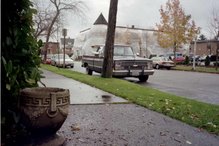"WAITING FOR SUPERMAN" / "RACE TO NOWHERE" / "PAPERS"
/////////
After the third movie, on Sunday afternoon, the audience moved to a different room in the Cinema Grand for a conversation.
//////////////
I had a feeling about the third movie that race was emphasized in the narrative when it discusses students - a transition to adult life is difficult for so many students. Featuring these three movies together (I saw them on Wednesday, Friday, and Sunday) allowed the movies to give one another balance. For example, every perfect girl graduating from high school faces the transition to adult life. When this was emphasized in the context of undocumented immigration, I reflected on the idea that teen pregnancy is a transition girls face too often.
///////////////////
I commented that I noticed one student finishing college, undocumented, plans to work in the field of Measures of Happiness - often as humans we take it for granted that happiness is not measurable. Psychology has taken up this topic. It applies to the discussion about Race and Pedagogy.
////////////////////
"The world seems to children like "a heartless cold-blooded place because they've been given the short end of the stick and they don't know why," one teachers says in the first movie, "WAITING FOR SUPERMAN".
///////////////////
The second movie "RACE TO NOWHERE" asks if the system is not wrong, if the displaced, marginalized are trying to achieve an unhealthy ethic - this "quantity-driven model" needs reform, says the filmmaker. (She was present when I attended the film and spoke to the audience.)
//////////////////////
The topic of the third movie, "PAPERS", that 12 million undocumented lived in
////////////////////////
The movie series features a number of other films.








